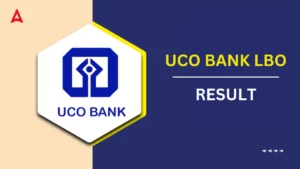Dear Aspirants,
Test your Professional Knowledge of HR with this questionnaire to prepare for IBPS HR Officer Examination. To score in IBPS SO (HR) Mains candidate must have adequate knowledge of Industrial Relations, Job Evaluation, Human Resource Planning, Labour Laws, Training and Development and more. This quiz covers important chapters of HR to help you prepare for the exam.


Q1. What is the term wherein the skill sets are listed in form of basic information on all the employees, like their education, experience, skills, age, sex, salary related data, job preference and special achievements?
(a) Job Specifications
(b) Job Inventory
(c) Job Analysis
(d) Job Description
(e) Job Enrichment
Q2. In relation to Quality circle, a statistical technique in decision-making used for the selection of a limited number of tasks that produce significant overall effect is-
(a) Exponential Smoothing
(b) Mean square weighted deviation
(c) Ishikawa cause and effect analysis
(d) Data Collection
(e) Pareto Analysis
Q3. In a scenario wherein there is an expectation of occurrence of surplus of employees, a logical step by an efficient Human Resource manager would be-
(a) Work present staff overtime
(b) Outsource an entire function
(c) Re-allocate people from elsewhere in the organisation
(d) Offer incentives for early retirement
(e) Re-engineer to reduce needs
Q4. Job enrichment implies increasing the contents of a job or the deliberate upgrading of responsibilty,scope and challenge in work. All of the following are a technique of job enrichment EXCEPT-
(a) give sufficient freedom to employees
(b) simply job by breaking down in fragments
(c) make the employee understand how tasks contribute to a finished product
(d) increase responsibility
(e) provide feedback to employees
Q5. Which of the following is a distinctive feature of Strategic Human Resource Management when compared to Traditional Human Resource Management?
(a) Focus on employee relations
(b) Ritualistic and reactive approach.
(c) Division of work specialisation and independent tasks constitutes job design.
(d) Permits employees to carry out job responsibilities in a free-flowing way
(e) Capital and products are critical resources
Q6. One of the external factors that influence the recruitment policy of an organisation is-
(a) Labour market
(b) Job attractiveness
(c) Union interference
(d) Personnel policies
(e) Organisational image
Q7. While designing an effective selection test which is standardized,objective based on sound norms and reliable, the test that indicates the occupation in which a person is most interested and is most likely to receive satisfaction is known as?
(a) cognitive aptitude tests
(b) Job Knowledge tests
(c) Vocational interest tests
(d) Work sample tests
(e) Psychomotor abilities tests
Q8. Which of the following will be a definite feature of performance appraisal in Human Resource Management?
(a) Only quantitative factors e.g. results are considered
(b) Focusses on job worth and personal traits
(c) Rating scales are used to rate the employees
(d) Covers rank and file personnel paid on hourly basis.
(e) Internal merits and qualities are studied as personal traits.
Q9. As according to Hierarchy theory of Maslow, needs related with recognition, self respect, self confidence etc would be considered under which of the following steps?
(a) Safety Needs
(b) Social Needs
(c) Physiological Needs
(d) Esteem Needs
(e) Self Actualization Needs
Q.10. Which kind of power a manager acquires to influence the employees?
(a) Legitimate
(b) Expert
(c) Reward
(d) Referent
(e) Dominance





 GA Capsule for SBI Clerk Mains 2025, Dow...
GA Capsule for SBI Clerk Mains 2025, Dow...
 The Hindu Review October 2022: Download ...
The Hindu Review October 2022: Download ...
 UCO Bank LBO Result 2025 Out, Direct Lin...
UCO Bank LBO Result 2025 Out, Direct Lin...





